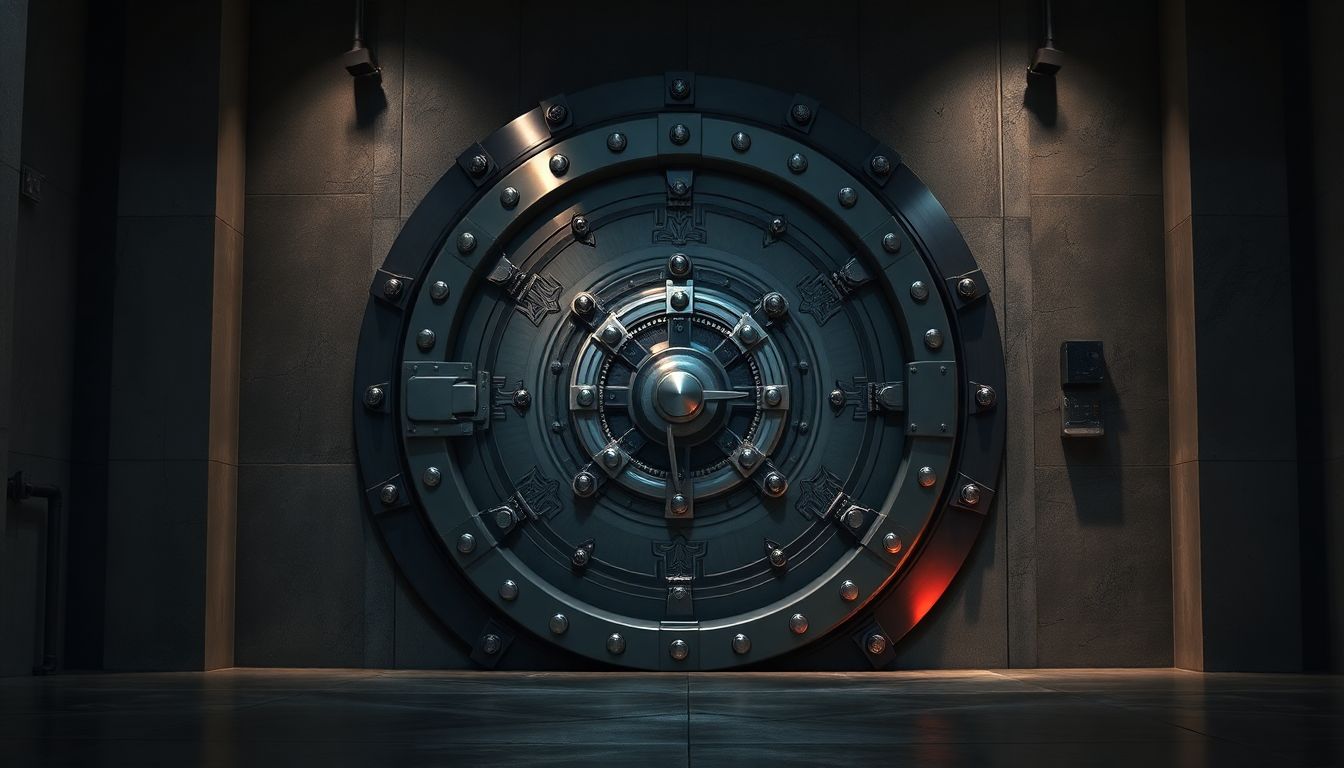
Buy Vault Door: The Ultimate Guide to Securing Your Valuable Assets
Introduction
When it comes to protecting your most valuable items, physical security should be a top priority. Whether you own expensive jewelry, important documents, or digital backups, a high-quality vault door can make a huge difference. With rising crime rates and increasing threats from natural disasters, investing in a durable vault door is more important than ever. This guide aims to help you make an informed decision—covering everything from choosing the right type to professional installation. Let’s walk through how to find the best vault door for your needs and secure your assets for years to come.
Why Invest in a Vault Door?
Security Benefits of a Vault Door
A vault door acts as a steel shield that keeps thieves out and protects your valuables. It’s not just about deterring theft—vault doors also resist fire, flood, and other natural damage. Research shows that homes with secure storage see a 60% lower chance of theft success. That’s because professional criminals often look for easy targets. Installing a vault door makes your space much harder to rob, giving you peace of mind.
Types of Assets Secured
Vault doors aren’t just for banks—they’re used everywhere. Jewelry stores, high-net-worth households, and even small businesses trust vault doors to protect:
- Jewelry and precious stones
- Cash and financial records
- Personal legal documents
- Digital backups stored offline
More industries are recognizing the importance of these strong barriers. From luxury retailers to medical offices, everyone needs extra security.
Legal and Insurance Advantages
A sturdy vault door can also help lower your insurance premiums. Many insurers see vault doors as a sign of good security, which might reduce your ongoing costs. Plus, if you ever face legal issues or audits, having all assets stored securely can simplify compliance and prove due diligence.
Key Features to Consider When Buying a Vault Door
Material and Construction
The core of a good vault door is its material. Steel is the most common, offering strength and fire resistance. Some doors use composites or advanced alloys for extra durability. Look for models with fire ratings up to 2 hours to protect your valuables from flames. Remember, a thick, well-built door is harder for intruders to breach.
Locking Mechanisms
How the door locks is as important as what it’s made of. Options include:
- Traditional key locks: simple but vulnerable if keys are lost
- Combination locks: require remembering a code, no keys needed
- Biometric locks: use fingerprints or retina scans for high-security needs
- Electronic locks: allow remote access and logging
Each type has strengths and weaknesses. For high-security setups, biometric and electronic locks offer the best control.
Size and Customization Options
Not all vault doors are the same size. Measure your space carefully before purchasing. Choose a door that fits well without crowding your room or workspace. Many vendors offer custom options like internal shelving, alarms, or reinforced frames—tailoring security to your unique needs.
Security Certifications & Standards
Look for certifications like UL (Underwriters Laboratory) or ANSI (American National Standards Institute). These ensure the door meets strict safety and security standards. A certified vault door offers peace of mind and confirms it has been tested under tough conditions.
How to Choose the Right Vault Door for Your Needs
Assessing Your Security Level
Determine what you are protecting and what risks exist. Do you need to stop petty theft, or guard against professional burglars? Conduct a simple security audit: check entry points, lighting, and nearby threats. This helps set your security goals.
Considering Installation and Space Constraints
Location matters. Is your basement ideal, or do you need to install a vault door in a closet? Think about access and space. Professional installers often handle complicated setups; DIY may work for standard doors, but don’t compromise on safety.
Budget and Cost Expectations
Prices can range from a few thousand dollars to over $20,000 for top-tier doors. Decide what features matter most and balance your budget accordingly. Remember, a cheaper door might cost more in the long run if it doesn’t offer adequate protection.
Consulting Experts and Reviewing Testimonials
Trustworthiness is key. Look for reputable vendors with good reviews. Ask questions about warranties, maintenance, and support. Testimonials from current clients can reveal real-world performance.
Where and How to Buy a Vault Door
Trusted Retailers and Distributors
Buy from established manufacturers or authorized dealers. Brands like American Security, Gardall, and Browning are known for quality. Purchasing from certified distributors ensures genuine products and reliable warranties.
Custom vs. Pre-made Options
When should you go custom? If you have unique space constraints or specific security needs, custom vault doors are worth the extra investment. Otherwise, pre-made doors are often sufficient and more budget-friendly for typical use cases.
Online Shopping Tips
Always verify seller credibility online. Check reviews, request detailed photos, and read the fine print on warranties. Confirm shipping details, especially for large, heavy vault doors—delivery and setup are critical.
Installation and Post-Purchase Security
Hiring a professional installer helps ensure the door’s security features work as intended. After installation, keep the lock mechanisms checked regularly. Consider updating security features periodically to stay ahead of threats.
Real-World Case Studies and Examples
A jewelry store replaced their weak safes with a UL-rated vault door and saw a marked drop in theft attempts. Meanwhile, a wealthy estate installed a custom vault door with biometric locks—setting a new standard for high-end security. Lessons: custom solutions matter, and working with knowledgeable installers makes all the difference.
Expert Insights and Recommendations
Security specialists advise matching your vault door with your threat level. Industry trends show increasing use of biometric and electronic systems for quick access and detailed logs. To get the most out of your investment, stay updated on new security tech and schedule regular maintenance.
Conclusion
Choosing the right vault door isn’t just about picking a piece of hardware. It’s a strategic decision that protects your assets, saves money on insurance, and provides peace of mind. Focus on durability, security features, and trusting reputable vendors. With careful planning and professional installation, your vault door will be a strong shield guarding what matters most—now and for years to come.
